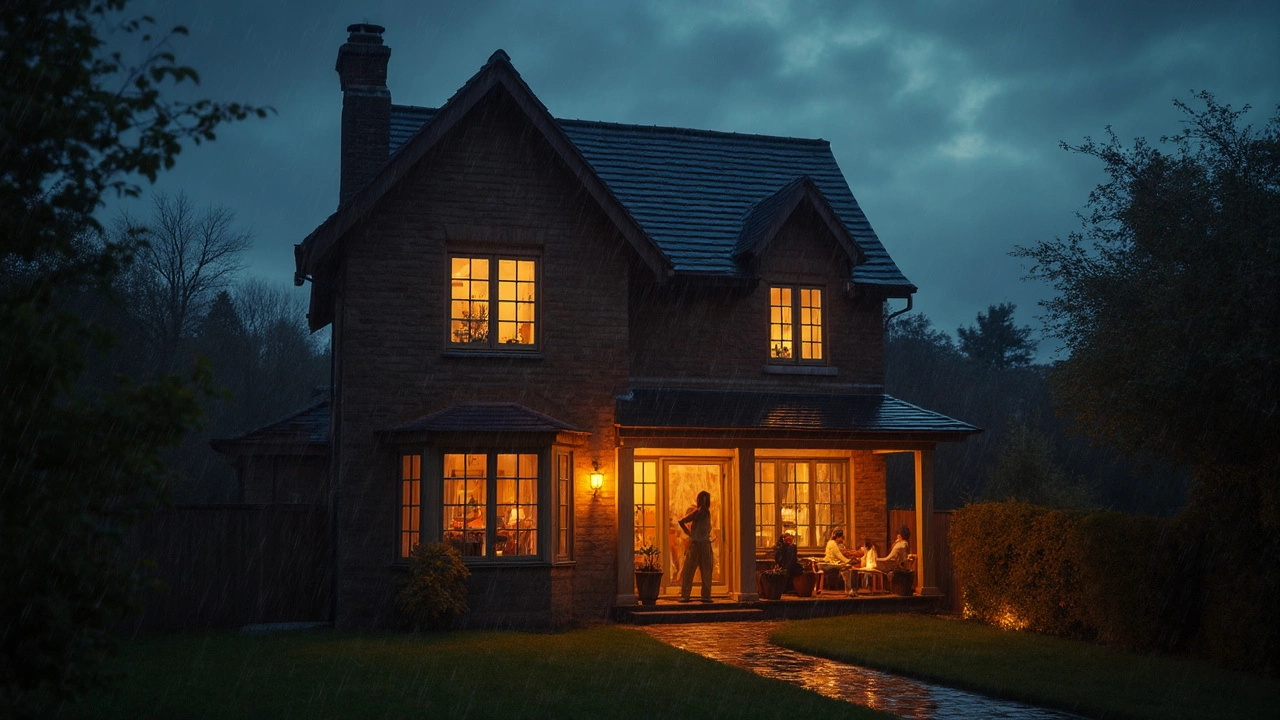Imagine a blackout hits your neighbourhood. Lights go out, appliances stop, and the house feels quiet. For most people that's inconvenient, but for a security system it can be a real risk. If your cameras, alarms or motion lights lose power, a thief can walk right through without being seen. That’s why a reliable backup power source is a must‑have, not an optional extra.
Security cameras are only useful when they capture video. During a power outage many standard cameras shut down, and even battery‑powered models can run out after a few hours. Without a live feed, you lose the ability to spot intruders, and you also lose the evidence that could help the police later. A backup system keeps the image rolling, the alarm beeping, and the lights glowing, giving you peace of mind that nothing slips by just because the electricity is gone.
There are three common ways to keep your security gear powered: a small‑scale UPS (uninterruptible power supply), a larger battery bank, or a standby generator. A UPS is cheap and plugs straight into the wall. It provides power for 10‑30 minutes – just enough to keep cameras recording and give you time to switch to a bigger backup. Batteries store more energy and can run a system for several hours or even days, but they need space and regular recharging. Generators give you almost unlimited run‑time, but they are louder, need fuel, and require professional installation.
When picking a solution, ask yourself three questions: How long do you need power? How much equipment are you protecting? What’s your budget? If you only need a short window to stay online, a UPS plus a small battery is often enough. If you live in an area with frequent, long outages, a generator might be the safest bet.Installation is usually straightforward for a UPS – just connect your DVR, NVR or alarm panel to it. Batteries may need a dedicated charging cabinet and some wiring, while generators should be mounted outside, hooked up to a transfer switch, and checked by a qualified electrician. Total Security Solutions can handle all the wiring and testing, so you don’t have to guess whether it’s done right.
Maintenance is simple but essential. UPS units need their batteries replaced every 2‑3 years. Larger battery banks should be inspected for corrosion and charge level quarterly. Generators need fuel rotation, oil changes, and a run‑test each month. Setting up reminders on your phone helps you stay on top of these chores without forgetting.
Bottom line: a power outage shouldn’t mean a security blackout. By matching the right backup power to your system’s size and your outage history, you keep your property protected around the clock. Need help sizing a UPS or planning a generator install? Our team at Total Security Solutions can design a custom backup plan that fits your budget and keeps every camera, alarm and light alive when the lights go out.

Ever wondered how your SimpliSafe system handles a power outage? This article delves into the key features that keep your home secure even when the lights go out. Discover how the system's battery backup kicks in, whether your Wi-Fi connectivity is affected, and get tips on ensuring optimal security during a power cut. Understand the significance of cellular backup and why it’s crucial for uninterrupted protection. Get practical advice on maintaining security with SimpliSafe when the power fails.